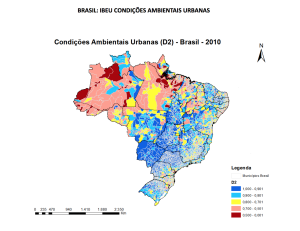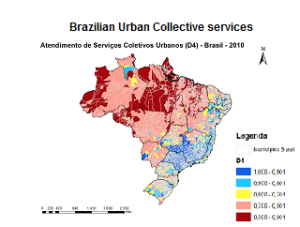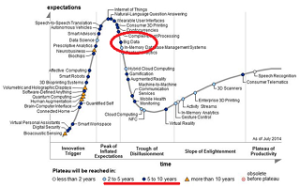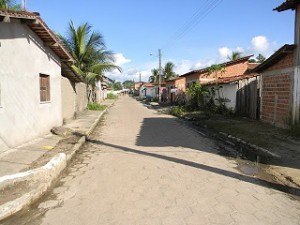
Arquivo para September, 2016
(Português) As condições ambientais das cidades
An little item noticed, and that is part of IBEU report by the Centre of Brazilian Metropolises, is environmental conditions, those who lived in wooded cities with rivers unpolluted across cities can say this, as good quality of life this item means.
is environmental conditions, those who lived in wooded cities with rivers unpolluted across cities can say this, as good quality of life this item means.
Fortunately in 2,182 Brazilian municipalities (39.2% of the total) the conditions are very good in 1443 (25.9% of total) the conditions are good, giving a total of 65% of municipalities, but there are still 1,055 in average conditions and 788 in bad conditions of welfare environmental, leaving 97 in very bad conditions, respectively represent 18.9% (medium), 14.1% (bad) and 1.7% (very bad).
A dimension that we do not treat here, but consists of the reports are the urban public services, adequate treatment of water, sewage and energy, as well as adequate garbage collection, since more than 50% of poor municipalities presentation conditions or very bad in this type of service.
The work was coordinated by Professor Marcelo Gomes Ribeiro, and had the fellows Gustavo Henrique P. Costa, Breno Willians N. Machado, Marina Martins de Araujo, Vitor Vilar Dromond, Dayanne N. de Oliveira Gomes and Tatiane Castro Torres
Brazilian collective services in cities
The framework of the welfare city, when observing the care of collective services is diverse, being concentrated in the Southeast the best positioned, there are 1,307 municipalities with very good levels, 570 with medium levels, 2,617 with bad levels and 390 with very bad levels, so bad and very bad exceed 50%.
services is diverse, being concentrated in the Southeast the best positioned, there are 1,307 municipalities with very good levels, 570 with medium levels, 2,617 with bad levels and 390 with very bad levels, so bad and very bad exceed 50%.
Among the capitals of the states of the federation there are 8 of them at very good levels in the question of compliance with collective services, 5 in good condition, seven in average conditions, and 7 in poor condition, which shows the great diversity of care services.
The capital with good conditions are in order: Vitoria, Belo Horizonte, Curitiba, São Paulo, Rio de Janeiro, Salvador, Porto Alegre and Brasilia, so are concentrated in the Southeast, as also shows the states of the map.
The indices correspond good to bad in the cities, respectively: 23.5%, 12.2%, 10.2%, 47% and 7% respectively. As it turns out, there is therefore a huge job to be done.
Remember that it’s not just in this regard investment in buses trains and subways, urban mobility is the ease of people transiting, access ramps for the disabled, local public to walk, cycle tracks and streets well done and wooded.
(Português) Infraestrutura nas cidades
Among the items analyzed by IBEU, although sanitation is a priority, most notably  among negative aspects is the urban infrastructure (sidewalks, paving, street lighting, etc.) as 91.5% are in bad levels and very bad , corresponding to 2,579 as bad (46.3%) and very bad (45.2%), ie, the issue is very serious.
among negative aspects is the urban infrastructure (sidewalks, paving, street lighting, etc.) as 91.5% are in bad levels and very bad , corresponding to 2,579 as bad (46.3%) and very bad (45.2%), ie, the issue is very serious.
The data shows that are great urban problems of Brazilian municipalities. Perhaps the main is the urban infrastructure (paving, sidewalks, street lighting etc.), as 91.5% of the municipalities are in bad and very bad levels, corresponding to 2,579 as bad, and 2,516 as very bad.
Among the capitals, those with good to average conditions are: Victoria (1), Goiania (2), Rio de Janeiro (3) São Paulo (4), Curitiba (5), Belo Horizonte (6), Brasilia (7) , Porto Alegre (8) and Florianópolis (9), are in poor condition: Aracaju, Campo Grande, Palmas, Recife, Salvador, Fortaleza, Teresina, Manaus, Natal, Cuiabá, João Pessoa, São Luís, Maceió and Bethlehem, and very bad conditions: Rio Branco (24), Boa Vista (25), Porto Velho (26) and Macapá (27).
There are only 441 municipalities in average conditions of well-being as urban infrastructure, 28 have good conditions, and only one in very good condition that is Camboriú (SC).
The map shows small regions between light yellow and blue mean the conditions is average and good, while shades of red indicate the poor and very poor conditions.
Brazilian municipal elections and poverty
In the current context of the municipal elections, at which most of
the candidates all over the country are debating proposals for cities and their management, the Observatório das Metrópoles promotes the release of the Urban Welfare Index of Brazilian Municipalities (IBEU-Municipal) with the purpose of providing another tool for evaluation and formulation of public policies.
The index shows a new survey on urban conditions of the 5,565 Brazilian municipalities, from the analysis of dimensions such as mobility, urban environmental conditions, housing conditions, collective services and infrastructure.
The Municipal-IBEU shows that among the greatest challenges in Brazil are the infrastructure and collective services. In evaluating the proper treatment of water and sewage, waste disposal and energy services, more than 50% of the municipalities are in bad conditions in these services.
The ranking of better cities in Brazil, in general smart cities with populations less than 17,000 habitants, concentred in São Paulo State is:
| Municipal Code | Name of the cities | Code UF | State of UF | IBEU | Ranking IBEU |
| 3508207 | Buritizal | 35 | São Paulo | 0,951 | 1º |
| 3547650 | Santa Salete | 35 | São Paulo | 0,941 | 2º |
| 3553658 | Taquaral | 35 | São Paulo | 0,937 | 3º |
| 3513850 | Dirce Reis | 35 | São Paulo | 0,936 | 4º |
| 3547205 | Santana da Ponte Pensa | 35 | São Paulo | 0,936 | 5º |
| 3515657 | Fernão | 35 | São Paulo | 0,934 | 6º |
| 3500600 | Águas de São Pedro | 35 | São Paulo | 0,934 | 7º |
| 3540002 | Pompéia | 35 | São Paulo | 0,932 | 8º |
| 3103108 | Antônio Prado de Minas | 31 | Minas Gerais | 0,931 | 9º |
| 3557105 | Votuporanga | 35 | São Paulo | 0,931 | 10º |
| 3158409 | Santana de Cataguases | 31 | Minas Gerais | 0,930 | 11º |
| 3510104 | Cândido Rodrigues | 35 | São Paulo | 0,929 | 12º |
| 3530003 | Mira Estrela | 35 | São Paulo | 0,929 | 13º |
| 4202008 | Balneário Camboriú | 42 | Santa Catarina | 0,928 | 14º |
Among the 15 Brazilian cities with better IBEU index, 12 are in the state of São Paulo, two in Minas Gerais and Santa Catarina, but between the capital Sao Paulo is only 12th.
Among the worst the city President Sarney in Maranhão State is more poverty, with rate is 0,444.
And the iPhone 7?
According to the site Tech Times, the number of iPhone 7:07 Plus were sold between 16 and 18 September was only three-quarters of sales of previous models iPhone 6S and 6S Plus in the previous corresponding period, this can mean two things: just the novelty effect or sales of Apple even collapsed for several reasons.
sold between 16 and 18 September was only three-quarters of sales of previous models iPhone 6S and 6S Plus in the previous corresponding period, this can mean two things: just the novelty effect or sales of Apple even collapsed for several reasons.
In another survey conducted by the consulting Morning Consult only 25% of consumers are actually willing to buy the new smartphone of the 33% that they were willing to buy the iPhone 6S, a year earlier.Overall the iPhone 7 is more simple and minimalist, a more clean interface, with less exaggerated icons working the strong Apple has always been the design.There is no more power or battery life, claims the headset for music are already large, there is also criticism of the malfunction after the airplane mode is activated, and a noise that would be bad fitting processor in the device.
For customers in Portuguese, says the translator Siri is smarter and more vocabulary, with fast processing for searches on Google, Twitter and other media networks, it is good to check.
The specification is is resistant to water splashes and dust (model Plus) and comes with the new 12MP cameras with wide angle lens and telephoto lens, A10 Fusion chip, new Retina HD display with wide tonal colors, and 32GB options, 128GB and 256GB (only this is new).
The precinho suggested US $ 649 (about R $ 2,080 in direct conversion without charges), a popular network “offer” is R $ 4,800.00 (U$ 1560), just to even some Brazilian´s peoples.
The well in Western culture
Despite the obstacles involved in the idea of good, first because it is only opposed to evil, return to the “being” of evil because it is non-being symbolic, the biggest problem is to rebuild the reflections of Plato and Aristotle, because the distance in time that we are thinking that although the founder of the west resounds strangely in today’s culture.
opposed to evil, return to the “being” of evil because it is non-being symbolic, the biggest problem is to rebuild the reflections of Plato and Aristotle, because the distance in time that we are thinking that although the founder of the west resounds strangely in today’s culture.
Just think of John Rawls are addressing the issue of fair, in The Theory of Justice, when it states that the two main concepts of ethics are “the concepts of right and good” (Rawls, 2002, p. 26), but an analysis detailed we will see that the good of the Greeks is not to Rawls.
As for Rawls’ good of a person is determined by what is for her rational life plan “(2002, p. 437) therefore has to a relationship with the social structure in which we live, beyond the “rational plan” it is questionable.
One might argue, but we are talking about the concrete society we live in, but rather in history often unknown to the root of the thoughts not only have little depth in question it, but mostly tend to repeat certain mistakes.
Plato in The Republic, has a rich quotation in details that can help us in this task to mine what is good in Western thought:
“Who is not able to define in words the idea of good, separating it from all others, and, as if in battle, exhausting all rebuttals, striving to give evidence, not through what appears, but the that is, advancing through all these objections with a foolproof reasoning, Do not bear a person in this condition know the good itself, or any other good, but if chance has contact with any image is the opinion, and not by science grabs it, and that your current life begins to dream and sleep as before awakening it here first descend to Hades there fall into a full sleep? “(The Republic, 534 b, c).
Two explanations necessary what is thought and what is down to hades, idea for Greek comes from eidos, it means going beyond appearance, going beyond its boundaries and has little or nothing to do with our idea today, that is idealist coming from Kant and “rational plan of life” of Rawls, who may have little to do with life.
Hades in Greek mythology is the land of the dead, the place where the souls of people would head after death. In this place the souls would undergo a trial where his fate would be decided (In the illustration Greek pottery from the dead).
To understand the good we must think beyond the appearance, eidetic, and soul that one day descend to the realm of death, but you can try it now in life, and Plato was not a Christian.
The good, the communication and the Self
Open to read “The fragility of goodness” Martha Nussbaum, unable to walk much, I received and opened it to read “The idea of the good in Plato and Aristotle” Hans-Georg Gadamer, was not too far, but in both I am happy to realize that it is a matter that belongs to the foundations of our Western thought, not just the Judeo-Christian.
walk much, I received and opened it to read “The idea of the good in Plato and Aristotle” Hans-Georg Gadamer, was not too far, but in both I am happy to realize that it is a matter that belongs to the foundations of our Western thought, not just the Judeo-Christian.
I return to our time, and retrace reading Habermas, and it against a self-criticism of both Kantian as Hegelian issues, looking at Peter Frederick Strawson (1919-2006), Paul Lorenzen (1915-1994) and Popper and understand a little better question of good, with the idea that modernity brought “grand unilateralizations” but that was to claim to preserve the unity of reason in the cultural field, without going through the subjective questions.
Habermas goes to the practical point of life, and although people are inconsistent in daily life with the understanding of what is right and what is good, there are problems when we want to explain the meaning of terms such as, “So good” or even ” the book is heavy, “because not reducible to a rational simple logic type” s p “, since there are many meanings in the experience of each of the same logical proposition.
Moral dilemmas in Habermas’s view, first arise in the world of life, the Lebenswelt which is the first of the moral to the philosopher, and will be in this world that they will see a “communicative action”, “to interactions in which people involved sets according to co-ordinate their action plans, the agreement reached in each case measured by the intersubjective recognition of the claims [of validity “(Habermas, 1989, P. 79).
Habermas raises the problem that goes from proposition to the understanding, recurring problem in the world of language, but now with an imperative: “Either we say that is the case or which is not the case or well we say something to others, so that he understands what is said “(Habermas, 1989, p. 40). It features the pragmatic-linguistic argument the validity of the objective world of things, the normative world of rules setting out what should be in the subjective world of experiences, and draws the moral standards and safeguards Ethics.
My conclusion is inevitable, it lacked the ontological understanding that is not subjective, not even hidden to be unveiled, understand the way Gadamer and Martha Nussbaum.
GADAMER, J. Little political letters, brazilian edition.
Dialogues difficulties
The use of dialogy, we can find it in disparate authors as the Austrian Jewish Martin Buber (1878-1965), the marxist M. Bakhtin (1895-1975) or the Brazilian educator Paulo Freire, but the practice of everyday life, in times of political tension, ideological and social, it shows an immense difficulty.
Jewish Martin Buber (1878-1965), the marxist M. Bakhtin (1895-1975) or the Brazilian educator Paulo Freire, but the practice of everyday life, in times of political tension, ideological and social, it shows an immense difficulty.
For cultural reasons and thought, this is not anything liquid, but a solid idealistic and fragmenting thought, our need for fragmenting is stronger than to integrate, for a very simple everyday reason, does not wish to hear contradictory.
This automatism agree or disagree, right or left (ideologically with a structured thinking there are very few people today of this type), and the reason is simple can not handle, even on a temporary basis, with the unknown, with different or with speech is not ours.
In fairness when the defense was not widely heard she has two features: the infringing embargoes and requests for clarification, the latter are simpler, it is when one person decides to include declare “their vote,” or we could say his conviction in Overall, it is when the dialogue did not have the required efficacy.
The infringing embargo, here we make an analogy putting the infringing dialogue is a tentative to show the flaws in the process and the need of legal defense was not fully satisfied, in the case of the dialogue, the Other was not sufficiently heard. (*infringing embargo, is a juridical resources after the final sentences)
In the Brazilian context, it seems necessary the use of infringing dialogue, because on both sides seems to be a tentative to say that this or that side is that would be cool, power would then try the infringing dialogue, lack strength and political will to this not only legitimacy also missing, but initiative.
Significant technologies for Big Data
Big Data is still an emerging technology, the cycle from emergence of a technology until their maturity, if we look at the hypo cycle Gartner curve, we see in it the Big Data on seed from the appearance, to the disappointment, but then comes the maturity cycle.
if we look at the hypo cycle Gartner curve, we see in it the Big Data on seed from the appearance, to the disappointment, but then comes the maturity cycle.
To answer the questions posed in the TechRadar: Big Data, Q1 2017, a new report was produced saying the 22 possible technologies maturities in the next life cycle, including 10 steps to “mature” the Big Data technologies.
In view of this research, the ten points that can, to increase the Big Data are:
- Predictive analytics: software solutions and / or hardware that enable companies to discover, evaluate, optimize and deploy predictive models through the analysis of large data sources to improve business performance and risk mitigation.
- It will take NoSQL databases: key-value, documents and graphic databases.
- Research and knowledge discovery: tools and technologies to support the extraction of information and new perspectives of self-service large data repositories unstructured and structured that reside in multiple sources, such as file systems, databases, streams , APIs and other platforms and applications.
- analysis Flows (analytics Stream): software that can filter, aggregate, enrich and analyze a high data transfer rate from multiple sources online disparate data and any data format (semi-structured).
- Persistent analysis (in-memory) “fabric”: allowing access to low latency and processing large amounts of data by distributing data over the dynamic random access memory (DRAM), Flash or SSD a distributed computer system.
- Distributed stores files: a network of computers where the data are stored in more than one node often replicated way, both redundancy and performance.
- Data virtualization: a technology that provides information from various data sources, including large data sources such as Hadoop tool and distributed data stores in real-time or near-real time (small delays).
This will require the last 3 steps that research suggests: 8. data integration: tools for data orchestration (Amazon Elastic MapReduce (EMR), Apache Hive, Apache Pig, Apache Spark, MapReduce, Couchbase, Hadoop, MongoDB) data preparation (modeling, cleaning and sharing) and data quality (enrichment and data cleansing at high speed) will be needed and that is done, you can make big productive Date “providing values something of growth through a balance Phase “
(Português) Religião, fanatismo e política
The beautiful book of the philosopher Spinoza (1632 – 1677) “Theological-Political Treatise,” 1670, is already in his time, the religious question seeing it as an excuse, that men used to hide their power ambitions and domain, for “including theologians are concerned to know how to extort the Sacred Books their own fantasies and arbitrariness, corroborating them with divine authority,” it took me years to understand this.
is already in his time, the religious question seeing it as an excuse, that men used to hide their power ambitions and domain, for “including theologians are concerned to know how to extort the Sacred Books their own fantasies and arbitrariness, corroborating them with divine authority,” it took me years to understand this.
In argument Spinoza, God being that he was a Jew and then to Christianity without being accepted in both God actually had nothing to do with it, were the men who wanted to lend their “convictions” to God.
Everyone is orthodox to himself, that is, it is considered the bearer of the true faith, which predisposes anyone toward the faith of others, it was born in his time the dispute between Lutherans and Catholics, which led to the Treaty of Westphalia (1648), but even without a peace and tolerance to the present day. So, you need to prevent a sure how this degenerating into civil war, but for the philosopher true religion was not attached to the power or wealth, nor the clergy of the domain, and other “lay” powers, and had nothing to do with the massacres.
Locke can be considered the first modern theory of separation of church and state, for it was to demarcate by law, definitively, the functions of the priestly world and the political world, otherwise the confusion between what concerns the Church and referred to the community, to this day still mixing the salvation of souls with the safety of the community and the state that represents it.
Luigino Bruni, an economist with a measure of religiosity, in his article “Common good and the economy: for an economy based on agape,” explained the difference between the common good and community and public, explains: “hi replaced by ‘public good ‘and’ Community ‘; closer observation of these concepts, however, reveals that its meaning is exactly the opposite of the traditions of the (economy) classical and Christian tradition of ‘common good’, given that both the ‘public good’ or the ‘Community’ they are essentially individualist, with no consequences for relations with the other during the consumption process. “See the article on these link.
Francis Bacon said that “shallow” philosophy leads to atheism, and deep religion, but it is necessary to overcome fanaticism and dogmatism.


